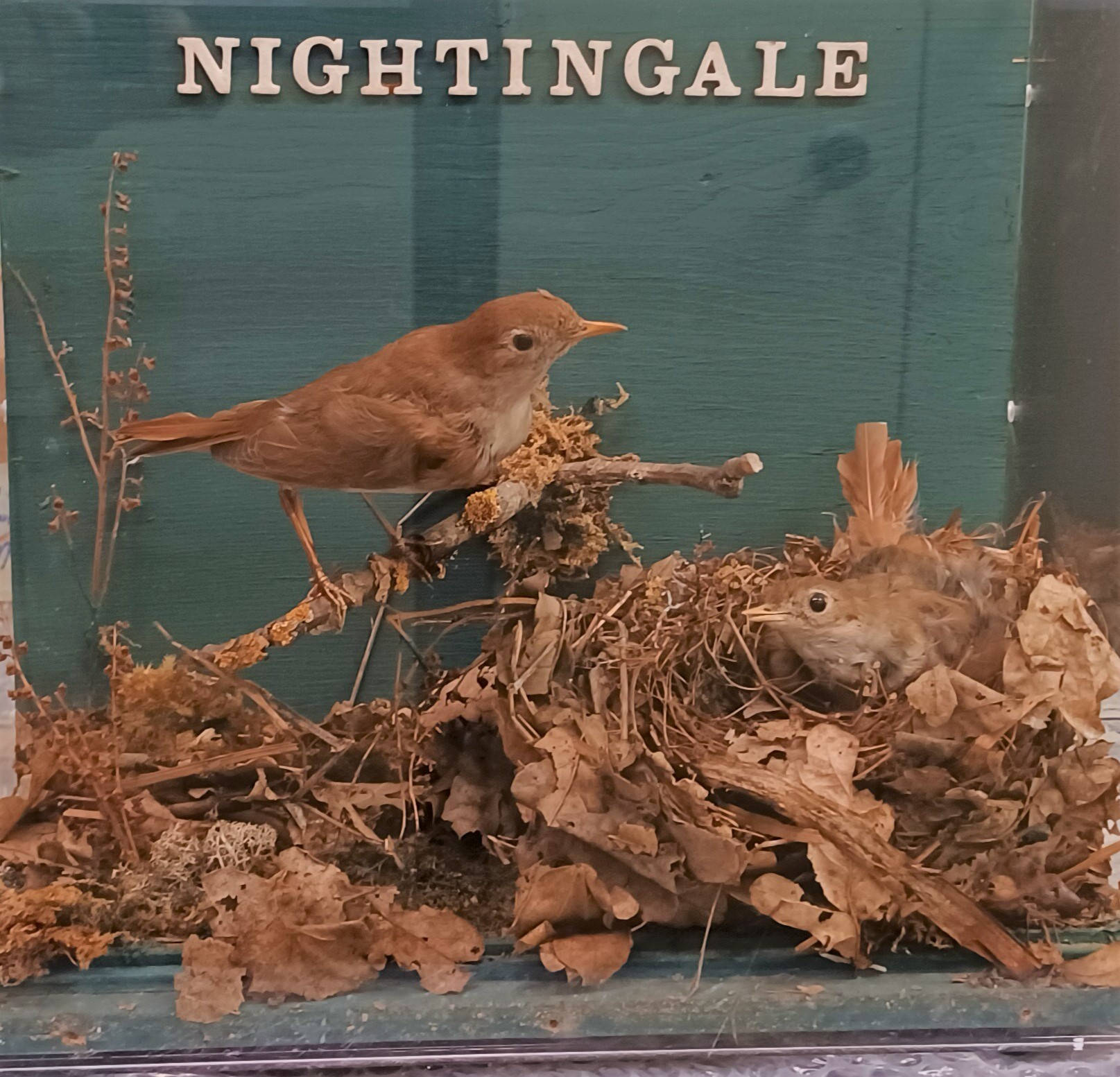
in 中文-普通话 / 国语 / Mandarin Chinese (simplified) translated by Hongjia
This object has been translated into 10 different languages by 10 different users
鸟鸣是一种与大自然联系的便捷方式。即使你看不到鸟,在春天你也能听到它们在你周围歌唱,以标明它们的领地和吸引配偶。所有的鸟类都有自己独特的叫声,比如夜莺的鸣啭以其优美而闻名。
你可以分享一首你特别喜欢的歌曲(任何语言)给我们吗?
Do you have something you’d like to say, in your own language or English, about the object or translation? We’d like to hear what you think.
Translations are community-sourced and for anyone to participate in, however you use your language. For more information, see Community Guidelines.
17 Sep, 2023
I really like the band ‘Lyrik’ at the moment. They’re an Australian fictional band from the soap opera ‘Home and Away.’ The song ‘Someone like you’ puts me in such a good mood. You can listen to it on youtube. It has a pop-rock feel to it and I like the chemistry between them and they look like they are really enjoying themselves and had fun producing the video (listening to this song as I type this). I also like the song ‘Hold on to this moment’ which I had to record on my phone as it isn’t available on youtube or spotify haha. That’s a nice chilled song 🙂 They deserve an album!
25 Jul, 2023
En fait, j’ai beaucoup des chansons preferés -c’est difficile pour choisir seulement un! Mais en Français, il y a un musicien que j’aime en particulier -il s’appelle Stromae. Il est Belgique, et son père était Rwandais.
Le nom ‘Stromae’ est actuellement une excentricité de la langue Français -c’est un genre d’argot s’appelle ‘Verlan’. Dans Verlan, un mot peux échanger le début et le fin (par exemple, l’invers –>Verlan) et Stromae est maestro –>Stromae.
Mon chanson preferé de Stromae est ‘Peace or Violence’ (Paix ou Violence), c’est au sujet de la difference entre les deux. Ça m’interesse en plus, et ce chanson a un sens de douleur avec le monde. Grave, je le recommande!
Translation:Actually, I have lots of favourite songs –it’s difficult to pick just one! But in French, there’s one musician I like in particular –he’s called Stromae. He’s Belgian, and his father is Rwandan.The name ‘Stromae’ is actually a quirk of the French language –it’s a type of slang called ‘Verlan’. In Verlan, a word can switch the start and end of the word (for example, the inverse (‘l’invers’, pronounced ‘larn ver’) = Verlan), and Stromae is maestro = Stromae. My favourite Stromae song is ‘Peace or Violence’. It’s about the difference between the two things. This is something I find really interesting, and the song has a sense of pain with the world. Seriously, I recommend it!
27 Jun, 2023
Notes on Italian culture
The recognizable and melodious song of the nightingale awarded him the role of muse for many poets across time and space. For instance, the bird commonly appears in several Shakespearean plays and poems. One of my favourite examples is in Romeo and Juliet. The morning the star-crossed lovers got married in secret, Juliet says to Romeo that the birdsong they hear comes from a nightingale to convince him that it is not yet dawn so that he would stay with her a bit longer:
Wilt thou be gone? It is not yet near day.
It was the nightingale, and not the lark,
That pierced the fearful hollow of thine ear.
Nightly she sings on yon pomegranate tree.
Believe me, love, it was the nightingale.
The nightingale is also associated with another tragic love story: the one between Francesco Petrarca and Laura. Petrarca (commonly anglicized as Petrarch) is one of the most famous Italian poets of the Renaissance. In his collection of poems called “Canzoniere”, he beautifully describes his unrequited love for the angelic Laura and his despair after her premature death. In poem 311, Petrarca describes the night song of a nightingale. The sweet melody echoes the poet’s pain but also consoles him as he connects with nature:
Quel rosignol, che sí soave piagne,
forse suoi figli, o sua cara consorte,
di dolcezza empie il cielo et le campagne
con tante note sí pietose et scorte,
et tutta notte par che m’accompagne,
et mi rammente la mia dura sorte:
ch’altri che me non ò di ch’i’ mi lagne,
ché ‘n dee non credev’io regnasse Morte.
O che lieve è inganar chi s’assecura!
Que’ duo bei lumi assai piú che ‘l sol chiari
chi pensò mai veder far terra oscura?
Or cognosco io che mia fera ventura
vuol che vivendo et lagrimando impari
come nulla qua giú diletta, et dura.
That nightingale who weeps so sweetly,
perhaps for his brood, or his dear companion,
fills the sky and country round with sweetness
with so many piteous, bright notes,
and it seems all night he stays beside me,
and reminds me of my harsh fate:
for I have no one to grieve for but myself,
who believed that Death could not take a goddess.
Oh how easy it is to cheat one who feels safe!
Who would have ever thought to see two lights,
clearer than the sun, make earth darken?
Now I know that my fierce fate
wishes me to learn, as I live and weep:
nothing that delights us here is lasting.